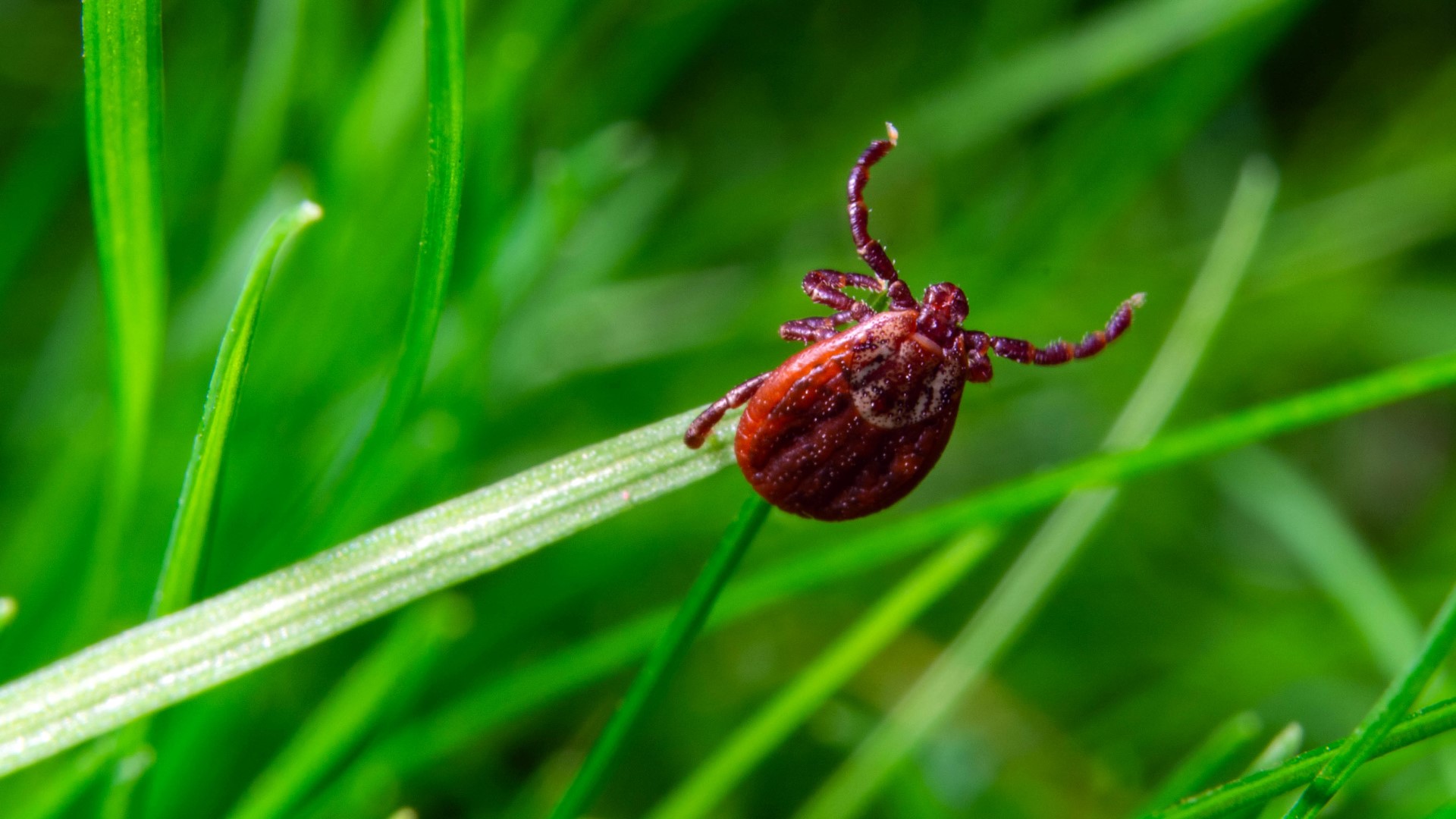YARMOUTH, Maine — Tick bait box technology was originally developed by the U.S. Centers for Disease Control as a way to fight ticks without spraying pesticides in your backyard.
The devices are designed to attract mice and other rodents, which are the primary carriers of ticks responsible for spreading Lyme and other tickborne illnesses.
More homeowners are using the devices to keep their families safe and to make less of an impact on the environment.
Leda Werrell and her family moved into a new subdivision in Yarmouth three years ago. Early on, it was clear that ticks were going to be a big problem.
"Even as we were building the house, there were so many ticks out, even though this was just dirt," Werrell explained.
Her three kids and the family's dog were bringing home ticks every time they came in from outside.
Jon Cole, who owns Northwoods Tick Control, and is a Lyme disease survivor, treated the perimeter of Werrell's property to knock down the tick activity. He also installed metal Tick Box Control Systems between the landscaped yard and wooded areas.
The boxes contain bait that attracts white-footed field mice, chipmunks, and other rodents, that carry deer ticks that can spread Lyme and other diseases. As the rodent moves through the box, a wick containing a low dose of the same chemical used in tick-control products for cats and dogs coats its backside. Ticks that attach die after exposure to the insecticide, without harming the rodents.
The devices were first pioneered by the U.S. Centers for Disease Control in the 1990s. David Whitman is the owner of Tick Box Technology Corporation, which manufactures Tick Box Tick Control Systems. He said the boxes are being used in 26 states, everywhere from private yards to school playgrounds.
"They are child-resistant and pet resistant, it doesn't impact the environment or wildlife," Whitman said.
The tick bait boxes do take longer than other methods like spraying to make a dent in tick numbers, however, because they focus on the early stages of the tick's life cycle, rather than when adults are laying eggs.
"We are targeting that life stage which will later in time, reduce the adult stage," Cole explained.
The boxes cost $55 each, and experts recommend installing eight to 10 boxes twice a year in May and late summer, with studies showing tick boxes can reduce ticks by more than 80 percent over a two-year period.
The Werrell family is only using the technology to protect against ticks, which is giving Leda peace of mind. Since installing the boxes, the mom of three hasn't spotted one tick on her kids or their dog. She also feels it's important that there is no impact on the environment.
For more information on Lyme disease, tickborne illnesses, treatment, and real-time tracking of cases in Maine, click here.

